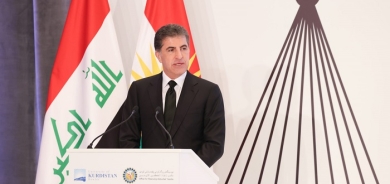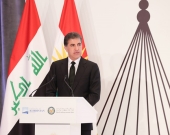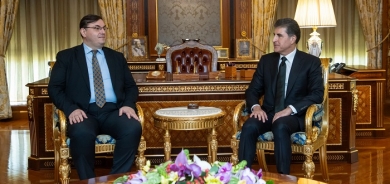WikiLeaks: France plays the victim in the intelligence game

French officials were quick to condemn new WikiLeaks revelations this week that the US National Security Agency (NSA) had spied on the last three French presidents – incumbent François Hollande, Nicolas Sarkozy and Jacques Chirac – as well as other high-level officials.
A special session of the Defense Council was called at the Elysée presidential palace and the US ambassador was duly summoned. France’s intelligence coordinator and the director general of France’s external security agency, the DGSE, were dispatched to Washington, ostensibly to demand an explanation from their American counterparts.
A statement from the Elysée Palace on Wednesday called the NSA’s actions "unacceptable" and noted that previous revelations in late 2013 had already strained relations between France and the United States. Subsequent commitments made by US authorities to assuage their allies "should be remembered and strictly respected", the Hollande statement said.
Prime Minister Manuel Valls also weighed in, calling for the establishment of an espionage "code of conduct" between allied nations and saying that the United States “must make every effort” to repair the damage that had been done by the latest exposé.
In a hastily arranged phone call on Wednesday, US President Barack Obama assured Hollande that Washington was no longer spying on the French leadership.
But some observers view the fervent displays of indignation as not much more than political theatre.
"The head of state has no political choice but to say that this is not acceptable, but it is absolutely clear that this was no surprise – it’s not like we didn’t know," said intelligence specialist Olivier Chopin, a researcher at the Raymond Aron Centre for Sociological and Political Studies (Cespra) and the author of the 2014 book, “Why America is spying on us".
"We are therefore witnessing a very coordinated political reaction,” he said. “France has now found itself in the same position that [German Chancellor] Angela Merkel was in a few months ago."
Merkel has been a high-profile target of NSA wiretapping in the past. Revelations that her private phone was tapped by German newspaper "Der Spiegel" in October 2013 caused a small diplomatic crisis between Germany and the United States. Obama subsequently promised to stop spying on allied leaders "except in cases of force majeure".
‘Forced to take a stand’
"The revelations are a source of worry and irritation – they force diplomats and leaders to take a stand – and it does not improve the atmosphere, but they are unlikely to have any real impact on Franco-American relations in the near term," said Nicholas Dungan, a senior adviser to the French Institute for International and Strategic Affairs (IRIS) and a senior fellow at the Atlantic Council in Washington.
"France has always pursued a policy of independence and equality with the United States,” Dungan said. “These revelations will not undermine cooperation between Paris and Washington on Cop21 (the UN Conference on Climate Change to be held in Paris in December), for example, or cooperation on espionage. No two countries work more closely together in the fight against terrorism.”
Dungan added that there would be no surprise on the American side if the White House found evidence that it was under surveillance by the Elysée. Despite all the declarations of the past few days, France is also a major player in the Great Game.
"Clearly, a country with the significant industrial base and strategic ambitions of France that did not develop its intelligence resources would be in a bad state,” Chopin said.
“France may not have the surveillance capabilities of the United States, but there remains an even greater gulf between those powers who have ‘technologised’ their intelligence – like the United States, China and Russia – and those who are lagging behind.”
Chopin noted that national legislation is crucial in determining the scope and effectiveness of a country’s surveillance capabilities.
Just as the WikiLeaks pique was reaching fever pitch, France’s Parliament approved a controversial intelligence bill on Wednesday that will significantly expand government surveillance powers, including authorising the bulk collection of metadata in the style of the NSA. The bill also streamlines the approval process for bugging homes, computers and cell phones belonging to private individuals, a provision that has prompted criticism from French privacy advocates and Amnesty International.
Even if the WikiLeaks reports revealed nothing really new, they do shine a spotlight on the advanced technical proficiency that allows the United States to intercept overseas communications even at the highest levels.
The question of technological domination lies at the heart of the matter, said Chopin. Just as nations have traditionally jockeyed for political, military and economic influence, digital technology has become a new geostrategic frontier.
This article was translated from the original in French.
FRANCE 24













